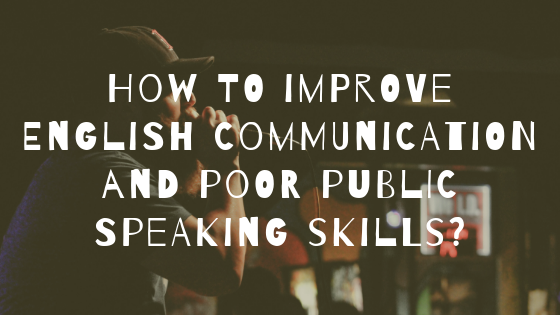In a globalized world where communication is currency, having Poor Public Speaking Skills isn’t just a personal barrier — it’s a professional one. Whether you’re pitching an idea, leading a team, or networking at an event, the ability to express yourself clearly in English and to command the room with confidence can make or break opportunities.
This comprehensive guide explores not just why many learners struggle with public speaking, but how they can transform those challenges into strengths — using proven techniques, structured public speaking training, and modern tools like the EngVarta App , widely regarded as the Best English Learning App for conversational and presentation mastery.
Understanding Poor Public Speaking Skills
When we talk about Poor Public Speaking Skills, we’re referring to a cluster of issues that often manifest together:
- Fear of speaking in front of audiences
- Hesitation, filler words, or lack of fluency
- Weak clarity and articulation in English
- Nervous body language
- Inability to structure and deliver compelling messages
These symptoms are not signs of deficiency — they are signals that a learner hasn’t yet been guided through the psychology, mechanics, and practice of effective communication.
Why Many People Struggle with Public Speaking and English Communication
Before we explore solutions, it’s critical to understand the root causes.
1. Lack of Confidence
Confidence isn’t innate — it’s built. When learners aren’t regularly encouraged to speak, especially in a second language, self-doubt grows faster than competence.
2. Language Anxiety
Many English learners feel scrutinized for accent, grammar, or vocabulary choice. This inner critic compounds fear and leads to silence rather than expression.
3. Absence of Practice
Grammar books don’t build confidence. Only speaking practice, especially in real-world contexts, bridges the gap between knowledge and performance.
4. No Feedback Loop
Without corrective feedback, speakers repeat mistakes and internalize poor habits.
5. Fear of Judgment
The anticipation of negative evaluation often triggers avoidance — and poor public speaking skills are as much psychological as they are linguistic.
The Role of Structured Public Speaking Training
The good news? Public speaking skills can be taught, practiced, and refined. A structured public speaking course or public speaking training program provides the roadmap:
- Clear frameworks for speech structure (opening, body, close)
- Techniques for voice modulation, pace, and emphasis
- Practice with feedback from experts
- Confidence-building exercises and mindful performance coaching
These elements transform learners from speakers who fear the stage to communicators who use the stage.
5 Proven Strategies to Improve English Communication and Public Speaking Skills
Here’s a blend of cognitive, linguistic, and performance-oriented strategies that help learners make measurable progress.
1. Embrace the Power of Deliberate Practice
Deliberate practice isn’t just talking more — it’s talking with purpose.
- Record your speeches and analyze clarity, pacing, and pronunciation.
- Practice pre-written scripts aloud.
- Use shadowing techniques to mimic confident speakers.
This boosts fluency AND self-awareness.
2. Speak Every Day — Build a Speaking Habit
We underestimate the compounding effect of daily speaking:
- Describe your day to a mirror
- Record a 60-second opinion video on a topic
- Join a speaking group
Frequent speaking reduces anxiety and strengthens neural pathways for English communication.
3. Learn the Science of Eye Contact, Gestures, and Presence
Public speaking isn’t just verbal. Non-verbal cues impact perception massively.
- Maintain soft eye contact
- Use purposeful gestures
- Stand with balance, not stiffness
These signals communicate confidence even when you feel nervous.
4. Structure Your Talks with a Simple Framework
A powerful speech isn’t improvisation — it’s architecture.
Try this:
- Hook — Grab attention immediately
- Message — One clear idea
- Evidence — Example, story, insight
- Call to Action — What you wish the audience to take action on
This technique simplifies the cognitive load and accentuates impact.
5. Get Feedback from Coaches and Peers
Feedback is the engine of improvement.
Without it, progress stalls. Peer review, mentor coaching, and expert critique illuminate blind spots.
How to Improve English Communication Specifically
While public speaking involves performance, language proficiency is the foundation underneath.
Expand Active Vocabulary
Passive understanding isn’t enough.
- Learn context-based vocabulary
- Use lexical phrases instead of single words
- Practice collocations and idioms
This makes speech richer and more natural.
Improve Pronunciation and Accent Clarity
Accent is not a flaw — clarity is.
- Focus on stress patterns and syllable timing
- Listen and imitate native rhythms
- Use shadowing exercises daily
Better clarity equals better understanding — and more confidence.
Develop Listening and Response Skills
Communication is two-way.
- Engage in dialogues, not monologues
- Practice active listening
- Respond to real questions
This sharpens adaptability and reduces fear of unplanned questions.
How EngVarta App Helps Overcome Poor Public Speaking Skills
1. Real Conversations with Expert Coaches
EngVarta App isn’t text-only — it connects learners with experienced English speaking coaches in real time. This:
- Breaks the fear of vocalizing English
- Builds confidence through live interactions
- Offers immediate feedback and correction
Learners evolve from hesitant to articulate.
2. Personalized Public Speaking Training
Standardized courses teach theory. EngVarta App delivers adaptive coaching tailored to each learner’s pace, accent challenges, and confidence barriers.
You don’t just practice — you improve with precision.
3. Practice in Safe, Supportive Spaces
Many learners fear judgment. EngVarta App cultivates a judgment-free environment where mistakes are reframed as growth signals — essential for language and performance fluency.
4. Structured Speaking Drills and Modules
EngVarta App offers speaking drills that mirror public speaking scenarios:
- Self-introductions
- Workplace communication
- Storytelling
- Presentation simulations
These drills build real competence — not just textbook English.
5. Ongoing Progress Tracking
Transformation is measurable.
EngVarta App tracks:
- Speaking fluency improvement
- Vocabulary expansion
- Confidence ratings
- Response times
This reassures learners that they are improving — and shows them how much.
Start Your Communication Journey
👉Improve your communication skills with daily 1-on-1 English practice on EngVarta App.
What Learners Are Saying
Real EngVarta App users frequently highlight:
- Faster confidence growth than in traditional courses
- Better clarity in both casual conversation and formal speech
- Increased ability to participate in meetings and presentations
- Speaking fluency gains within weeks, not months

These testimonials underscore EngVarta App’s impact on public speaking and presentation skills.
Tips to Maximize Results with EngVarta App
To make your improvement journey faster and more meaningful:
1. Set Clear Speaking Goals
Decide what you want to achieve:
- Present with confidence?
- Speak fluently at work?
- Host webinars in English?
Write these goals and revisit them weekly.
2. Speak Daily Using the App
Use EngVarta App every day — even 15 minutes makes a difference. Consistency creates neuro-linguistic grounding.
3. Embrace Feedback
Record sessions, review coach notes, and iterate. Improvement accelerates when you listen to yourself as well as the coach.
4. Pair Practice with Real-World Use
Talk to colleagues, join clubs, make videos — put your skills into action.
Transform Your Communication — Starting Today
Poor Public Speaking Skills shouldn’t define your potential. With the right strategy, consistent practice, expert feedback, and adaptive tools, anyone can become a compelling communicator.
Why EngVarta App is Your Best Ally
EngVarta App transforms learners from afraid to articulate, from hesitant to confident, and from unsure to unforgettable.
- Personalized coaching
- Real-world speaking drills
- Measurable progress
- Confidence enhancement
- Flexible learning
It’s more than a language app — it’s a confidence companion.
👉 Connect with EngVarta on Social Media
📸 Instagram : 👉 https://www.instagram.com/engvarta.app/
▶️ Youtube : 👉 http://www.youtube.com/@EngVarta
🅕 Facebook: 👉 https://www.facebook.com/engvarta
🔵 LinkedIn: 👉 https://www.linkedin.com/company/engvarta
Conclusion
Improving English communication and poor public speaking skills is a journey of self-discovery as much as skill-building. It requires courage, structure, feedback, and daily commitment.
Whether you’re preparing for your first big presentation or you want to feel confident in every conversation, starting with real speaking practice is the key — and there’s no better partner in this journey than EngVarta App.
Frequently Asked Questions ( FAQs )
-
What is the key element in public speaking
Confidence. EngVarta App builds confidence by making you speak regularly, helping you express ideas clearly and naturally in English.
-
What is the problem, cause, and solution in public speaking?
The problem is fear and hesitation, the cause is lack of practice, and the solution is consistent speaking practice with expert guidance on EngVarta App.
-
Why do I struggle with speaking so much?
You struggle because of fear, hesitation, and lack of speaking exposure. EngVarta App helps you overcome this by providing a safe space to speak without judgment.
-
How to fix your poor communication skills?
Practice speaking daily in real conversations. EngVarta App improves communication by correcting your English, building fluency, and boosting confidence in real time.
-
Why do I have poor speaking skills?
Because you haven’t practiced speaking regularly with feedback. EngVarta App fixes this through daily live English conversations with experts.


